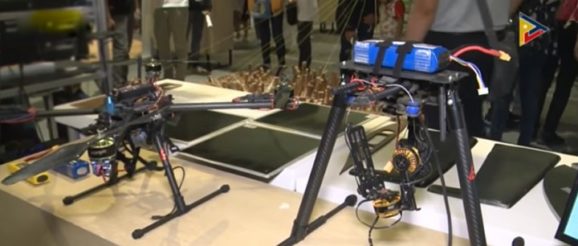Innovation, technology boosts economic growth: NEDA | Philippine News Agency

(File photo courtesy of PTV)
MANILA — Socioeconomic Planning Secretary Ernesto Pernia has stressed the need to vigorously advance the country’s science, technology and innovation (STI) agenda, which is key to economic growth and improving the quality of life of Filipinos.
Speaking in Business Intelligence and Data Analytics Forum and Showcase on Friday, Pernia said building STI ecosystem is relevant as the government embarks on efforts to strengthen science and technology.
He pointed out that the Philippines can benefit immensely from the adoption of digital technology such as analytics, which can help organizations efficiently and immediately identify problems, come up with solutions, and even create new goods and services.
“For us in the public sector, there is much to be done in terms of fully utilizing data analytics. We need to catch up with science, technology and innovation. We need to upgrade our IT infrastructure, create networks and database inter-operability between and among agencies, and produce a skilled and nimble workforce that can optimize the use of these emerging technologies,” he said.
Pernia, also Director-General of the National Economic and Development Authority (NEDA), said the government has been actively improving its systems and is shifting to e-governance.
He cited the Department of Budget and Management and the Department of Science and Technology that have established a Project Digital Imaging for Monitoring and Evaluation, which monitors government projects through light detection and ranging technology, satellites, and drones.
Pernia further noted President Rodrigo Duterte’s order in his recent State-of-the-Nation Address (SONA) to streamline government transactions and processes and cut the red tape through the use of digital technology.
“Developing our capability to adopt, produce, and utilize these types of technologies will allow us to not only raise our economic growth potential but also improve the lives of our people through quality public services,” he added.
The NEDA chief said technological innovations can further upgrade particularly the information technology-business process outsourcing (IT-BPO) industry, which thus far has contributed about 10 percent to the country’s gross domestic product (GDP) and 15 percent to formal employment.
He further underscored the important role of academics, such as scientists and engineers, in the supply side of the STI ecosystem.
“But to make the ecosystem alive and functional, there must be demand for what scientists and engineers produce—i.e., the demand on the side of the private sector—business people, including industrialists, entrepreneurs, and capitalists,” he added. (PNA)
